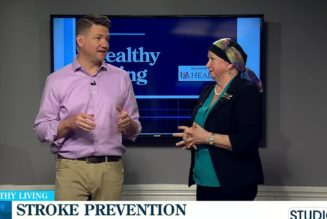
We include products we think are useful for our readers. If you
buy through links on this page, we may earn a small commission or
other tangible benefit. Wellos and Healthline Media are owned by RVO Health. Here’s our process.
How we vet brands and products
Healthline only shows you brands and products that we stand behind.
Our team thoroughly researches and evaluates the recommendations we make on our site. To establish that the product manufacturers addressed safety and efficacy standards, we:
- Evaluate ingredients and composition: Do they have the potential to cause harm?
- Fact-check all health claims: Do they align with the current body of scientific evidence?
- Assess the brand: Does it operate with integrity and adhere to industry best practices?
We do the research so you can find trusted products for your health and wellness.
Was this helpful?
Regular exercise has been shown to help boost energy levels and enhance your mood. It may also be associated with many other health benefits, including a reduced risk of chronic disease.
Exercise is defined as any movement that makes your muscles work and requires your body to burn calories.
There are many types of physical activity, including swimming, running, and walking, to name a few.
Being active has been shown to have many health benefits, both physically and mentally. It may even help you
Here are the top 10 ways regular exercise benefits your body and brain.
Exercise has been shown to improve your mood and decrease feelings of depression, anxiety, and stress.
The authors of a 2019 review found that
Exercise may
Stopping to exercise may also affect your mood. A
Inactivity may play a
Your body spends energy in three ways:
- digesting food
- exercising
- maintaining body functions, like your heartbeat and breathing
A reduced calorie intake may lower your metabolic rate, which can temporarily delay weight loss. However, regular exercise may
Combining aerobic exercise with resistance training may also
Exercise plays a vital role in building and maintaining strong muscles and bones.
As people age, they tend to lose muscle mass, strength, and function. This leads to an increased risk of injury. Practicing regular physical activity is essential to reducing muscle loss and maintaining strength as you age.
Exercise also helps build bone density. The authors of a
Impact exercises like gymnastics, running, or soccer may help
Exercise can help boost your
Aerobic exercise boosts your cardiovascular system and improves lung health, which may help with energy levels.
Your heart pumps more blood as you move, delivering more oxygen to your working muscles. With regular exercise, your heart becomes
Over time, exercise results in less demand on your lungs. This is one of the reasons why you may find yourself getting less and less out of breath during exercise, according to the American Lung Association.
Regular physical activity is a
Your skin can be affected by the amount of oxidative stress in your body.
Oxidative stress occurs when your body’s antioxidant defenses cannot completely repair the cell damage caused by compounds known as free radicals. This can damage the structure of the cells and negatively impact your skin.
Intense and exhaustive physical activity may contribute to oxidative damage. However, a
The authors of a 2021 review concluded that regular exercise may help delay the appearance of skin aging, prevent psoriasis, and improve venous leg ulcers.
Exercise can improve brain function and protect your memory and thinking skills.
To begin with, exercise increases your heart rate. This promotes the flow of blood and oxygen to your brain. It can also stimulate the production of hormones that enhance the growth of brain cells.
For example, exercise has
Regular physical activity is important in older adults because it can help
Regular exercise can
It may help improve your sleep quality because the energy loss that occurs during exercise
Also, the increase in your body temperature during exercise may help it
A
Chronic pain can be debilitating. For many years, the recommendation for treating chronic pain was rest and inactivity.
However, the authors of a
One way that exercise may help prevent or reduce chronic pain is because it
Exercise may also help you
- chronic low back pain
- fibromyalgia
- chronic soft tissue shoulder disorder
Regular exercise may help
For example, engaging in regular exercise can strengthen your heart, improve blood circulation, tone muscles, and enhance flexibility, all of which may help
A
Another
Which exercise can you do every day?
It’s important to let your body recover between intense resistance and cardiovascular exercise sessions. That said, there are some less intense exercises you can do every day to help you get to 300 minutes per week. These may include walking, cycling, dancing, and skateboarding.
What exercises are good for belly fat?
According to the British Heart Foundation, you can’t target one specific area of fat to burn off. But, a consistent mixture of aerobic exercise, resistance training, and eating a well-balanced diet can help you burn fat all over your body. Some exercises include swimming, yoga, running, strength training, and rock climbing.
Exercise offers incredible benefits that can improve nearly every aspect of your health. Regular physical activity can increase the production of hormones that make you feel happier and help you sleep better.
The
Moderate-intensity aerobic activity is anything that gets your heart beating faster, like walking, cycling, or swimming. Activities like running or participating in a fitness class count for vigorous intensity.
You can use weights, resistance bands, or your body weight to perform muscle-strengthening exercises.









